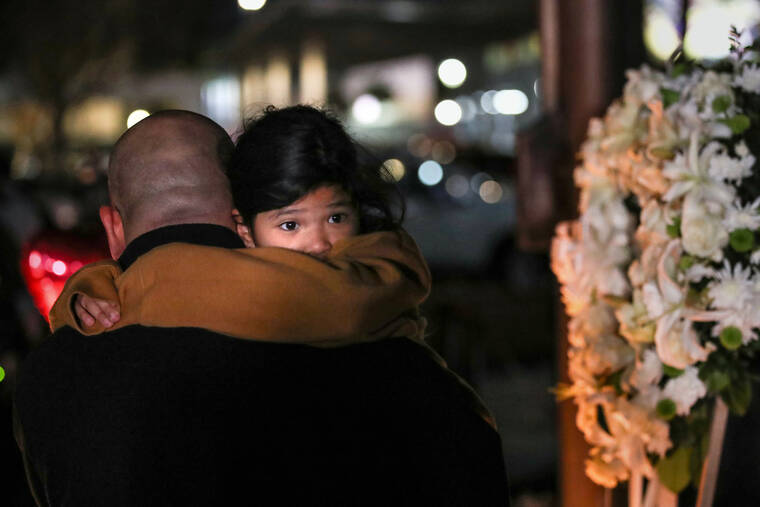For anyone worried about how children handle mass shootings like the one in Monterey Park, I have an answer: Probably better than American children of any previous generation.
That shooting, like those recently in Goshen and Half Moon Bay, wasn’t at a school. Using the grim calculus of American gun culture, that fact might put them a notch below Uvalde and Newtown on the mass shooting horror scale. This may be callous, but it’s the kind of assessment that happens in a country where there are more mass shootings in a year than days.
For those of us who live in the neighborhood, the Lunar New Year’s Eve killings affected every institution in the community. My children attend school in the Alhambra Unified School District, which also serves Monterey Park, the city to Alhambra’s south — and is also working-class and majority Asian.
The schools here handled the trauma of the tragedy sensitively in a way that only a parent living in a country with more guns than people can appreciate. Hours after the shooting, the AUSD superintendent emailed parents a statement that expressed sadness and condolences, and also dispensed practical advice for talking to children about grief and the attack: Don’t let the news do the talking, and ask children to share their thoughts with you. It also reminded parents who own guns that state law requires them to store their weapons safely.
It was refreshingly utilitarian. Mass shootings, both in school and in the community, are common enough that we need a to-do list. The superintendent’s note felt like the educational equivalent of “news you can use.”
Still, something about the district’s letter didn’t sit right. So I sent it to two of my cousins in Oslo, Norway, who have children similar in age to mine, and asked them what they thought. Their responses were what you might expect in a country that had a total of seven firearm homicides in 2021.
One wrote back: “We have never gotten a letter like this. And I can’t imagine ever being sent a letter like this.”
The other: “I’m shocked! No. I have never received a letter about something like this.”
This reflects the high price that only we in America pay for firearm freedom: No matter where you stand on the Second Amendment or how it’s applied, you cannot deny the reality of children growing up with mass shootings as a routine part of life.
The way I talked about earthquake drills and my parents recall hiding under desks to prepare for World War III, my children talk about “lockdown drills.” They know to keep utterly silent when their teacher shuts off the light, locks the door and covers the door window with a map or seating chart or any opaque material that will block a killer’s view inside. Kids in the bathroom can’t lock their doors, so they know to crouch on a toilet seat and hope a gunman doesn’t check the stalls.
Where children know to follow orders, teachers think of ways to improvise. Some educators have been forced to think about how many first graders can cram inside a closet long enough to hide from a killer. “When we are in the closet, we sit and I tell them we’re playing a version of hide-and-seek,” one teacher wrote in a letter to The Times, after the shooting in Uvalde, Texas, last May. “When they ask why are we practicing this drill, I tell them it’s because we don’t want whatever bad is happening outside to get into our ‘safe’ classroom.”
My children say their teachers and friends have talked about the Monterey Park tragedy in class and on the playground. They’re aware that the dance studio on Garfield Avenue in Alhambra, where Brandon Tsay heroically disarmed the gunman, isn’t far from our neighborhood. And they’ve assured me how well they’ve been taught in class to hide if the next shooting is on their campus.
In other words, they can handle this. That they will need to is distressing, too.

